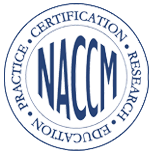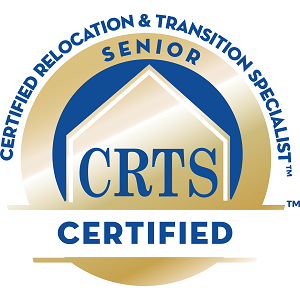Senior Services for Supporting Brain Injury Recovery
When a senior experiences a brain injury, the repercussions extend far beyond the physical damage. These injuries can disrupt the very essence of their daily lives, affecting their independence, cognitive abilities, and emotional well-being. For the elderly, who often face additional health challenges, the path to brain injury recovery can be particularly complex and daunting. The impact of a brain injury at this stage of life underscores the critical need for a support system that is both comprehensive and tailored to the unique needs of older adults.
This article aims to shed light on the essential services and resources available for seniors recovering from brain injuries. Understanding these options is key to facilitating a smoother, more effective recovery process and ensuring that seniors receive the comprehensive care and support they need during this critical time.
Understanding Brain Injury Recovery in Seniors
Brain injury recovery in seniors is a process that demands careful consideration of the unique challenges posed by aging. Unlike younger individuals, older adults often have a slower recovery rate due to age-related physiological changes. Aging can affect the body’s overall resilience, making it harder to recover from the physical and cognitive impacts of a brain injury. The brain’s plasticity, or its ability to adapt and rewire itself after injury, diminishes with age, often leading to longer and more complex rehabilitation processes.
Additionally, seniors frequently contend with other age-related health conditions, such as decreased mobility, reduced vision, or pre-existing cognitive impairments, which can complicate their recovery journey. These factors not only prolong the healing process but can also amplify the effects of a brain injury. For example, a senior with a pre-existing condition like arthritis or diabetes may find it more challenging to regain mobility or manage their overall health post-injury.
Finally, the psychological impact of brain injury on seniors can be profound. The loss of independence, the fear of further injury, and the frustration of facing new limitations can lead to feelings of depression and anxiety, further complicating the recovery process.
Understanding these nuances is crucial for effectively supporting seniors through brain injury recovery. It underscores the importance of a personalized approach to rehabilitation, one that considers the individual’s overall health, lifestyle, and specific age-related needs.
Services for Supporting Brain Injury Recovery in Seniors
Navigating the path to recovery after a brain injury can be a daunting task for seniors and their families. However, a variety of services are available that can significantly aid in this process. This section will explore a range of services that play a crucial role in aiding recovery, each contributing to the overall well-being and rehabilitation of senior patients.
Medical Rehabilitation
Medical rehabilitation is an essential component of recovery for seniors who have experienced a brain injury. Tailored to meet the specific needs of older adults, these rehabilitation services focus on restoring lost skills and functions. Treatments often include physical therapy to improve mobility and strength, occupational therapy to regain daily living skills, and speech therapy to address communication challenges. Cognitive rehabilitation may also be incorporated to help with memory, attention, and problem-solving skills.
At Reflections Management and Care, the coordination of these medical rehabilitation services is a key aspect of our approach to care. We understand the importance of integrating various therapies and treatments to create a comprehensive rehabilitation plan that suits each individual’s needs. Our involvement ensures that seniors receive not only the necessary medical care but also a holistic approach to recovery, fostering improvements in all aspects of their health and daily life.
Recreational Programs
Recreational programs play an invaluable role in the recovery process for seniors with brain injuries. These programs are designed to stimulate cognitive function and enhance overall well-being, often through enjoyable and engaging activities. Recreational therapy can include arts and crafts, music, games, and gentle physical activities, all of which contribute to improving mood, self-esteem, and social interaction.
Reflections offers a specialized recreational program that provides a range of cognitive and physical benefits for seniors recovering from brain injuries. These programs are a vital part of therapy that helps maintain cognitive functions and promote a sense of normalcy and fulfillment in the lives of seniors. By incorporating recreational activities into our care plans, we aim to support the holistic recovery of our clients, ensuring that their journey toward healing is both effective and enriching.
Psychological Support
Psychological support is another critical aspect of the recovery journey for seniors who have experienced brain injuries. The emotional and mental impact of such injuries can be as significant as the physical effects. Seniors often face challenges like depression, anxiety, and changes in personality, which can affect their overall recovery and quality of life. It’s also a challenging time for families who may feel overwhelmed or uncertain about the best ways to support their loved ones.
Counseling and therapy services tailored to the needs of older adults can provide immense benefits. These services help seniors and their families navigate the complex emotional landscape post-injury, offering strategies for coping with changes and fostering mental resilience. Rcognizing the importance of mental health in recovery, Reflections offers counseling support services as a part of their care management plans. These services are designed to provide a compassionate and understanding environment where seniors and their families can express their concerns and work through the emotional challenges associated with brain injury.
Check-in Services
Check-in services play a vital role in ensuring the ongoing care and safety of seniors with brain injuries. Regular check-ins provide families with the reassurance that their loved ones are safe and receiving the attention and care they need. These services are especially beneficial for families who may not be able to provide daily, hands-on care due to distance or other commitments.
For example, Reflections offers a Peace of Mind Package, a monthly check-in service specifically designed for families caring for a senior with a brain injury. This service includes regular visits by trained professionals who assess the senior’s well-being, monitor their recovery progress, and provide companionship. For families, this service offers the assurance that their loved ones are in good hands, allowing them to feel connected and involved in their care, even from a distance.
Reflections: Your Partner in Senior Brain Injury Recovery
To conclude, supporting brain injury recovery in seniors requires a compassionate, multi-faceted approach. The journey is often long and complex, with each individual facing unique challenges and needs. Understanding this, Reflections Management and Care is committed to offering a comprehensive range of services tailored specifically to aid in the recovery and overall well-being of seniors who have suffered brain injuries.
If you or a loved one are navigating the challenges of brain injury recovery, Reflections Management and Care is here to support you. For more information on our services and how we can assist you, simply reach out to Reflections today. Let us be your partner in creating a safe, nurturing, and supportive environment for your senior loved ones.














